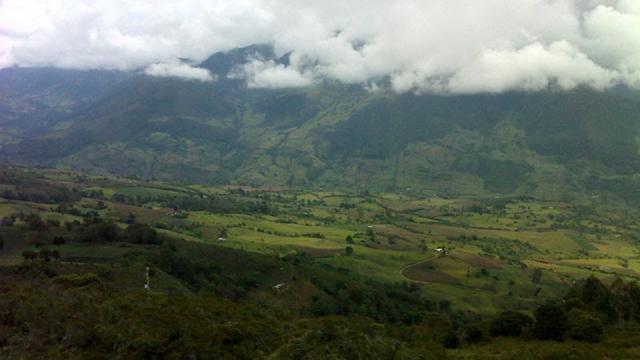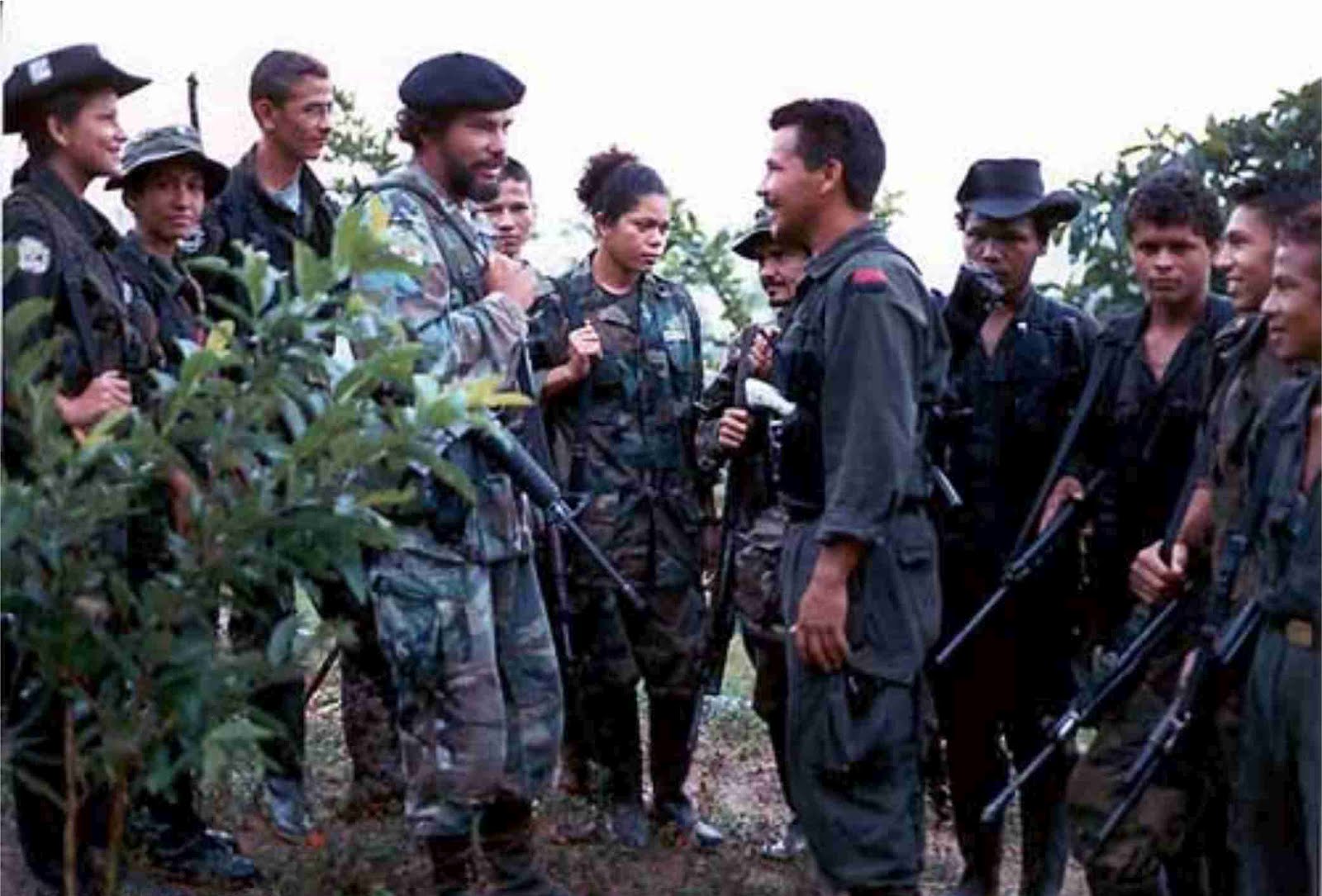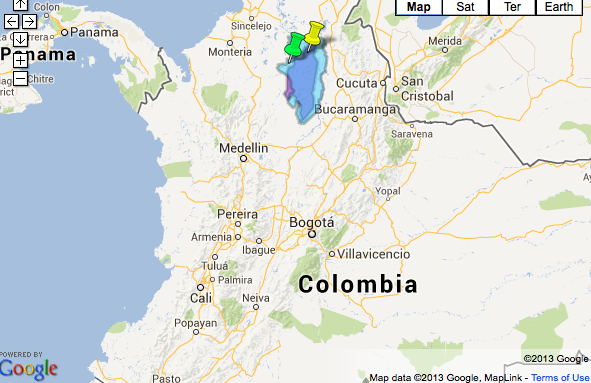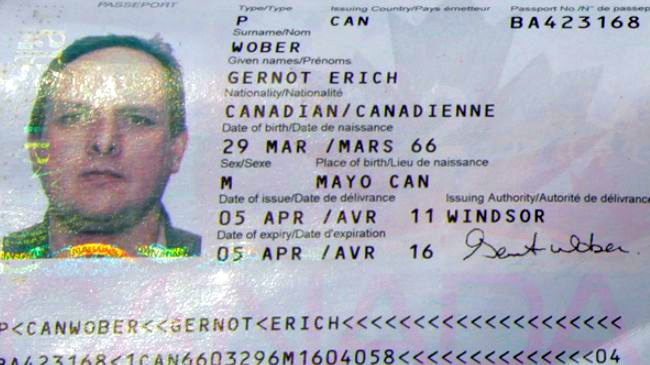
Gernot Wober was a long way from his Canadian home when, on January 18, he was taken captive by Marxist guerrillas in the town of Norosí, Colombia.
The reasons Wober is still being held are deeply entwined in a long-running war between rebels and the Colombian government. It's a five-decade struggle to control the country's northern region, which is called the South of Bolívar. At stake is a bounty of gold -- and who gets to mine it. Multinational mining companies, as one might imagine, are lined up to exploit the resource. But the region is also home to so-called "traditional miners" -- home-grown, low-tech operators who scrape out a living sifting gravel, sand and dirt for the precious ore.
Wober, a vice-president of exploration at the Toronto-based Braeval Mining Corp., is a pawn in that war over who gets the gold. And his captors, the National Liberation Army (ELN), are not likely to let him go without a bloody fight or something very valuable in return.The ELN is the second largest guerrilla group in Colombia with roughly 2,500 armed members and a long historical presence in the South of Bolívar. On the day the ELN invaded a mining camp and took Wober, they also took hostage two Peruvians and three Colombian nationals.
The ELN immediately admitted the crime. Selective kidnappings are one of the tactics rebels use to control the South of Bolívar and especially its heart, an isolated 16,000 square kilometre mountainous area known as the Serranía de San Lucas.
The rebels claimed they took Wober captive because corrupt Colombian officials gave the mining titles that properly belong to local miners to the Toronto-based company. "The government gave 99 per cent of the mining titles of the Serranía de San Lucas to the foreign companies, leaving just one per cent to the communities that inhabit that territory," said the Marxist group in a communiqué.
The Colombian government responded by sending at least 600 soldiers to chase the rebels. The guerrillas declared they would not release Wober until the disputed mining titles were returned to the communities. That hasn't happened and Braeval Mining Corp. has remained silent. Braeval declined comment on Wober's situation, and the company has not made any public statement about the issue.*
Alejo Vargas is a member of the Colombian civil commission trying to facilitate peace talks between the government and the ELN. He echoed Colombian media reports by telling The Tyee the liberation of Wober might be close. But upon closer inspection, it's unclear if Vargas is reflecting some change in the ELN position, which seems firm. Just Wednesday the ELN declared themselves willing to "release really soon" Wober -- but only if the situation with the mining titles is resolved.
Meanwhile, clashes between government soldiers and the ELN in the region continue. And the people who live there bear the brunt, suffering as a result shortages of food and medicines.
The Battle for the Serranía de San Lucas
The ELN was born of Fidel Castro's revolutionary victory in Cuba. There, in the early 1960s, a group of Colombian students were trained to be guerrilla war fighters and returned to their home country. They decided a good place to start a revolution was the Serranía de San Lucas. Its rugged geography and lack of state presence made it ideal for organizing and gathering strength.
It took 20 years for them to control the area. By the 1980s, the ELN dominated the region. Their mixture of Marxism, liberation theology, and community activism helped them win the partial support of the population. They also regularly violated international law by blowing up pipelines and taking hostages.*
In the late 1990s the ELN faced a potent foe, as Carlos Castaño, head of the far-right paramilitary forces in Colombia, or AUC, made it his obsession to take back the territory from the guerrillas.
The AUC knew about the strategic importance of the Serranía: whoever controlled it would profit from the massive cocaine traffic to the Caribbean and the huge gold deposits that were being discovered. Moreover, seizing the Serranía would ensure access to the largest watercourse in Colombia, the Magdalena River.
Castaño's crusade became one of the bloodiest battles in the history of the Colombian armed conflict. At least 500 civilians disappeared and some 94,000 refugees were uprooted between 1997 and 2008 in the South of Bolívar, according to a studypublished by Colombia's central bank.
The warrior Castaño put in charge of that crusade went by the chosen alias of "Julian Bolívar". Now imprisoned, Bolívar has been charged with about 100 crimes including the murder of 12 union leaders in the South of Bolívar. He has pleaded guilty to directing 20 massacres in the region. "We became a machine to kill," he told a Colombian media outlet.
Despite the bloodbath, the paramilitaries never reached the top of the Serranía where the ELN established its headquarters. Indeed, some of the far-right death squads gave up their arms to the government after peace talks in 2006. The guerrillas were not wiped out, but they suffered serious losses. The popular view in Colombia in 2003 was that the war in the South of Bolívar was ending and the ELN had lost. That is when the big mining multinationals set their eyes in the Serranía de San Lucas.
Mining Companies Move In
Over the past decade, making the South of Bolívar safer for a foreign investment-fuelled mining boom has meant a military presence in the region -- and a further toll in lives. In a special investigative report, the Revista Semana (the Colombian version of Maclean's magazine) denounced the Colombian army for allegedly killing local mining leaders while trying to set up the Serranía de San Lucas for the smooth operation of the mining multinationals that were arriving.
As such accusations increased, then-president Alvaro Uribe fired some of the army commanders in the region.
Serranía de San Lucas remains beyond government control and is increasingly the subject of alarms sounded beyond Colombia's borders. A group of scientists from Cambridge, Oxford and other universities published a report in 2005 that concluded the Serranía "has been subject to a massive environmental and human catastrophe in recent years on an unimaginable scale." And they declared the Serranía "a place of global importance for biological diversity."
According to the study, one of the reasons for the catastrophe was the contamination of land and watercourses caused by mining activities.
Colombia's governmental office in charge of public spending published last month a study concluding that in regions "where the armed conflict subsists, there shouldn't be mining projects approved." The study, directed by MIT economist Luis Jorge Garay, cited various problems arising from Colombia's push to shift to a mining economy in partnership with outside corporations. The projects too often threatened food sovereignty and peasant rights. The activities of mining companies in remote areas were nearly impossible to regulate. When military forces were sent in to secure the territory around mining projects, communities suffered. And in those places, land speculation was destroying the social and economic fabric.
The report revealed that "80 per cent of human rights violations in Colombia happen in mining-petroleum towns while 87 per cent of the refugees come from those towns, and 78 per cent of the crimes against union leaders are committed in energy-mining areas."
Into that volatile situation arrived, last January, 47-year-old Canadian geologist Gernot Wober.
'The Canadian Stays'
Nearly a month after Wober was kidnapped, the three Colombians and two Peruvians taken in the same raid were unilaterally released by the ELN to the International Red Cross Committee. When the freed hostages were asked about Wober, one of them described Wober as a "strong, avid walker, used to extreme conditions." He had "behaved strongly during the whole ordeal, skilfully and with much courage." But Wober, said the freed hostage, had been separated from the rest of the group a few days back.
"The Canadian stays," was the headline of the ELN communiqué that day.
Juan Carlos Pinzón, the Colombian Defense Minister, sees nothing altruistic in the ELN's tactics. Taking Wober hostage was just one more act of extortion by the guerrillas, he said. "(The ELN) is looking for money, like always. It is unacceptable." A clearly infuriated Pinzón rejected the ELN's "justifying kidnap" which is "a serious human rights violation. We are still looking for them."
But Carlos Arturo Velandia, a former ELN commander who fought in the South of Bolívar, thinks the ELN's motivation is different. He believes the guerrilla group may intend to use Wober as a bargaining chip to pressure the government to include them in peace talks already underway with Colombia's FARC, the largest and strongest guerrilla movement in Latin America.
If so, Colombian President Juan Manuel Santos isn't ready to invite the ELN to the table until Wober is a free man. "If the ELN decides to enter the process and for us to decide if it enters, they must release the Canadian citizen," he said to a group of high ranking military officers on May 9.
There remains the fact that the ELN has yet to change its official position. Wober won't be released, say the rebels, until his bosses back home in Toronto renounce Braeval's mining intentions in the Serranía de San Lucas. As an ELN communiqué put it: "A proof of (Braeval's) will to negotiate would be to return the mining titles they have wormed out from the communities."
Amid all this verbal manoeuvring, Gernot Worber waits.
Might the Colombian government send in a military team to rescue the Canadian by force? Intense military operations continue in the South of Bolívar region. On May 6, the ELN announced it had been fighting paramilitary squads in the nearby town of Montecristo and the army has already captured seven or so subversives in relation to the kidnaps.
Wilson Bolaño, the Home Secretary of Montecristo, a town in the Serranía, spoke to The Tyee about the situation: "The people are desperate. A few days ago the guerrillas killed a young moto-taxi driver, Jose Luis Rodríguez, and its passenger who was going to a mine," he said. "They argued they were paramilitaries, but that is not true."
"The guerrillas are threatening anyone who uses the road. There is shortage of food and medicines. The community is always the one who suffers the consequences of these problems. We need help," Bolaño said.
Alejo Vargas of the Civil Commission to Facilitate Peace Talks with the ELN doesn't think the government is considering a military raid to try and spring Wober.
More talk, the right kind of talk, is what will pry loose the Canadian caught in the middle, says Vargas. "If there is really a willingness from the ELN to advance in the peace talks, there should be an agreement relatively soon," he told The Tyee.
Whatever the guerrillas are seeking to pressure the government into doing, it seems clear that the Canadian mining executive they hold captive is far more valuable to them alive than dead.
Which may be why Vargas insists on speaking in hopeful terms. The liberation of Gernot Wober, he said, would seem to be "somehow inevitable."
3 WAYS TO SHOW YOUR SUPPORT
- Log in to post comments















